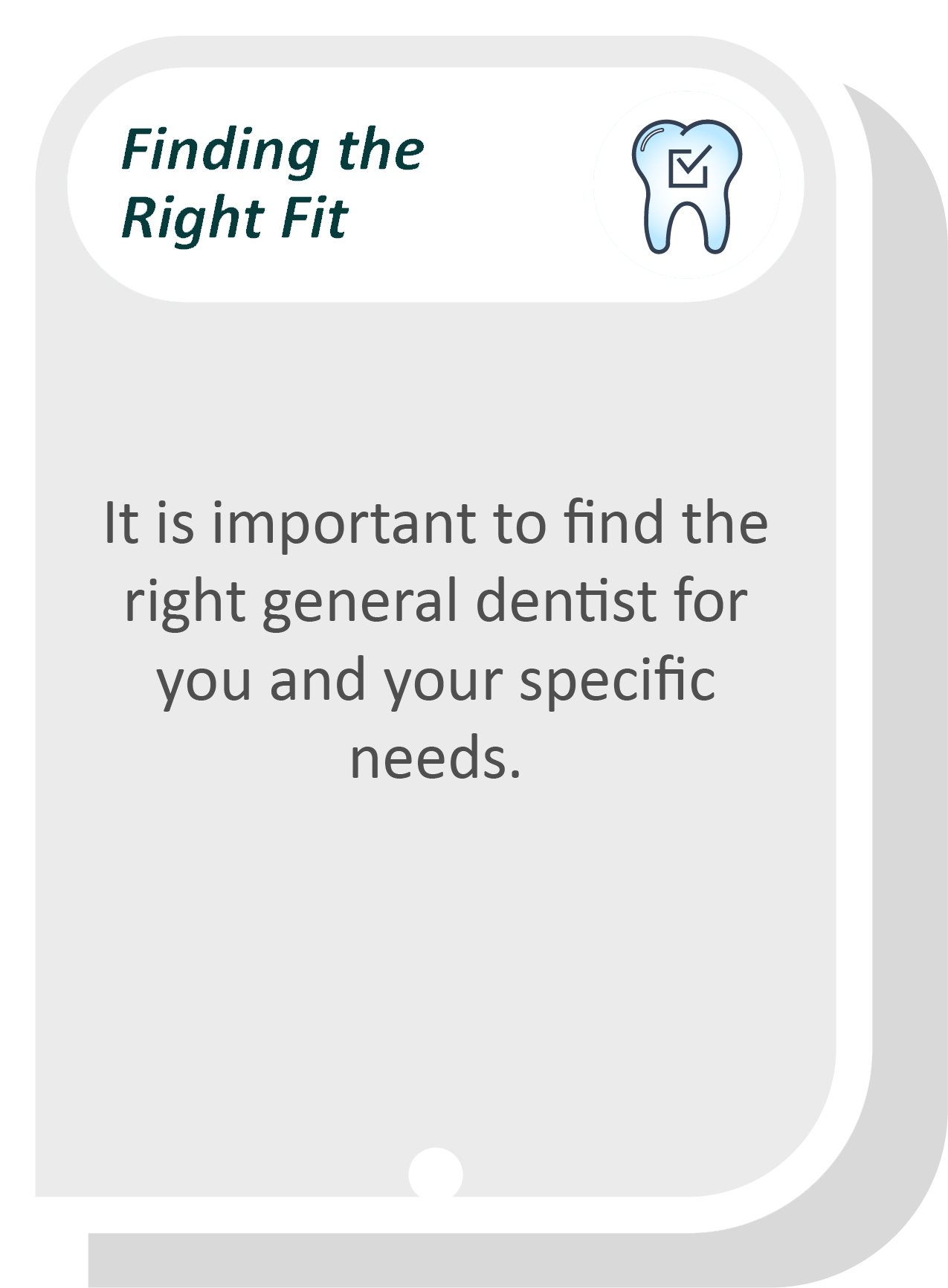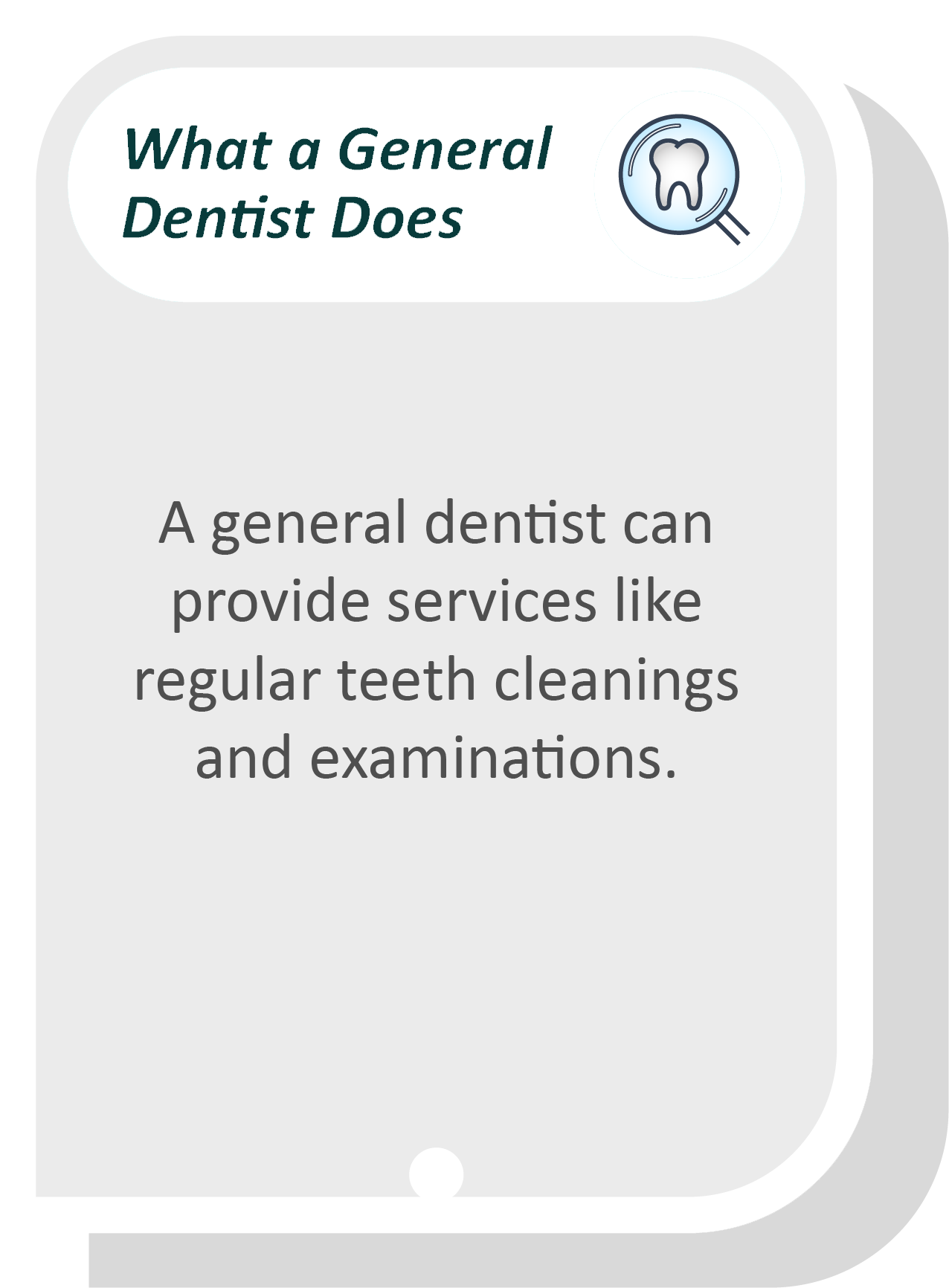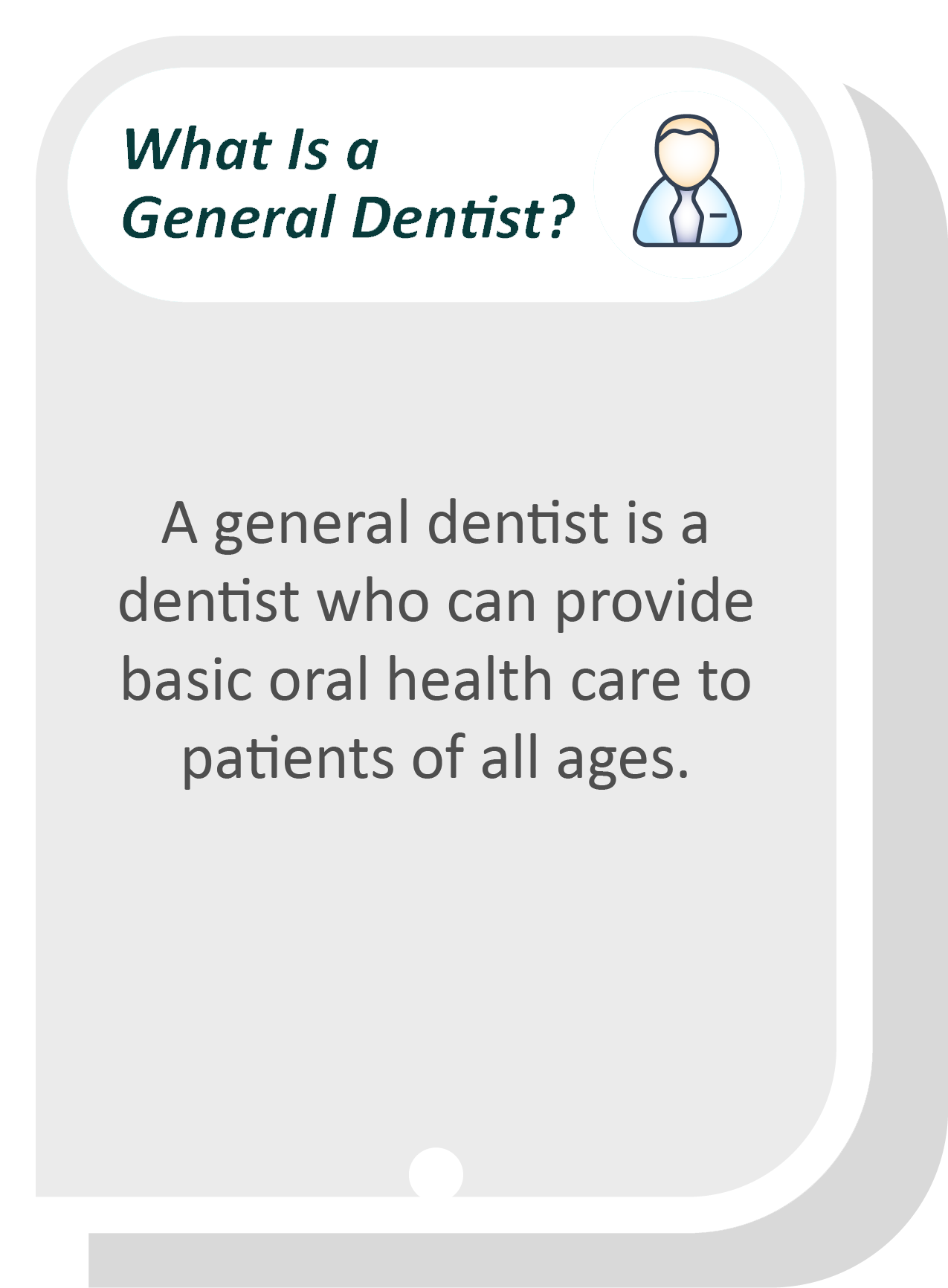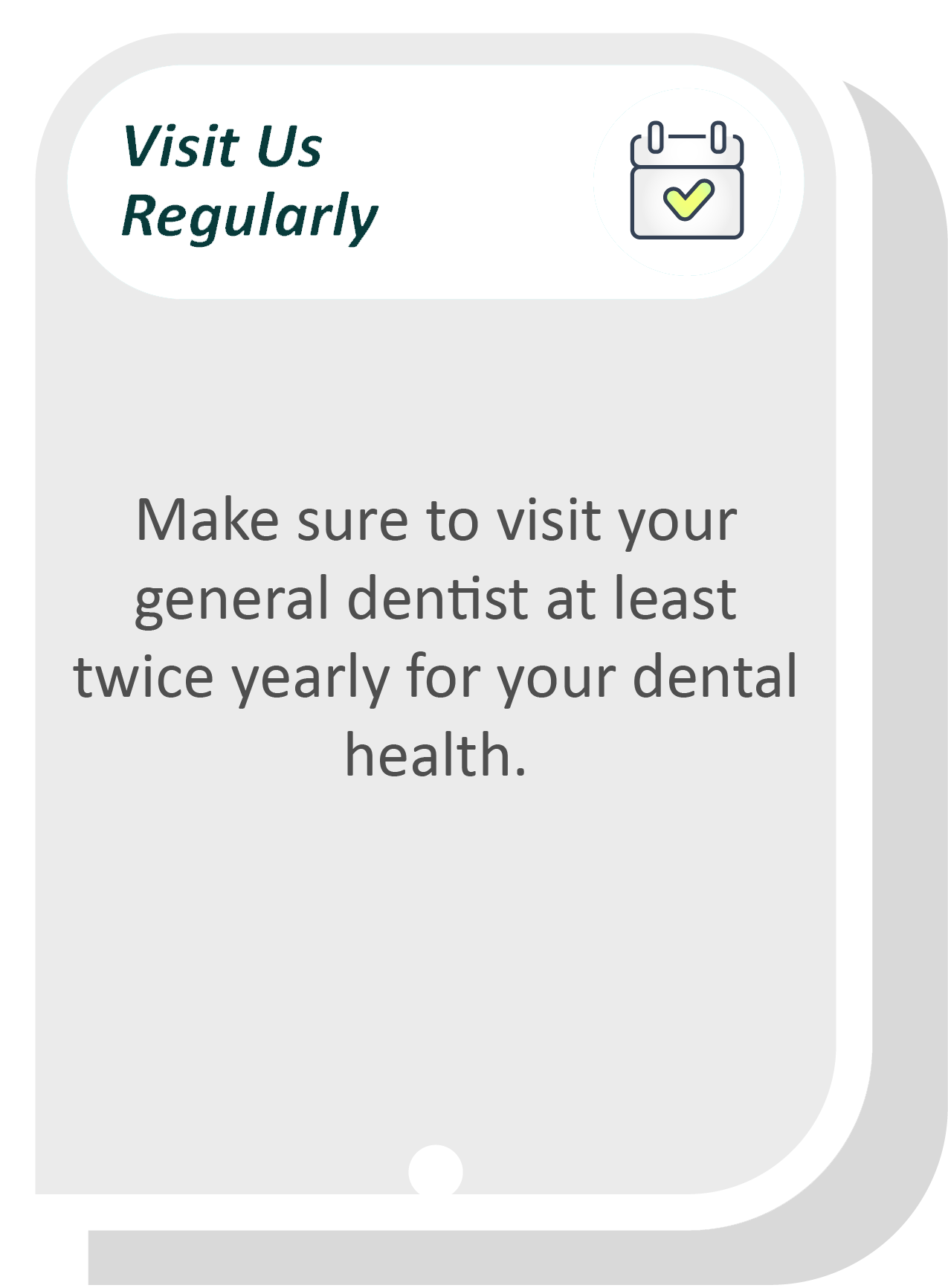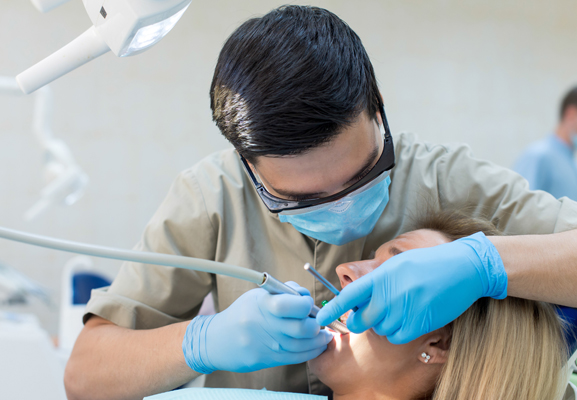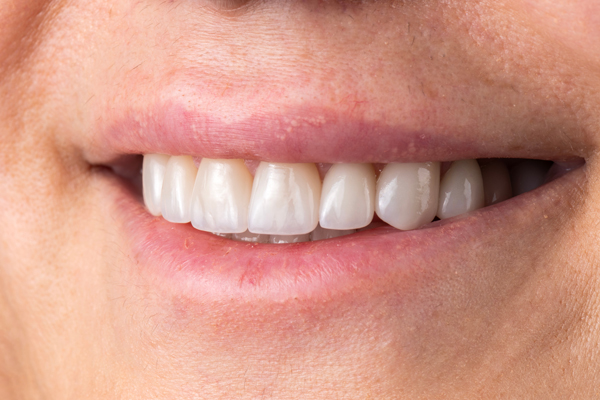General Dentist Charlotte, NC
A general dentist is a trusted partner in oral health care in the same way a general practitioner helps individuals maintain overall physical health. Many dental patients make finding a knowledgeable dentist who makes them feel comfortable a high priority. A general dentist is a well-informed professional who provides the regular cleanings and routine maintenance necessary to keep smiles bright, clean, and healthy.
A general dentist is available at Randolph Dental Care in Charlotte and the surrounding area. Generalists are the main oral health care providers of people of all ages. While general dentists are highly educated and trained in multiple dental procedures, there are certain services they may not provide. For these services, a dentist may refer the patient to a specialty dentist. We take your concerns seriously and strive to provide trustworthy dental care. Contact Randolph Dental Care today at (704) 366-3622 to schedule an initial patient consultation.
Differences Between DDS and DDM
Finding the right general dentist is just as important as finding the right general physician. Clients need to feel comfortable enough with the professional to express their wants and concerns while trusting the dentist completely for the care of their teeth. A general dentist is much like a primary care dentist who can provide all the essential needs of standard oral health care. During your search for a general dentist, you are bound to come across two standard abbreviations: DDS and DDM. What are the differences between the two? Is one more qualified than the other? The short answer is no.
According to the American Dental Association, the only difference between a DDS and DDM is a single letter. DDS stands for Doctor of Dental Surgery, while DDM stands for Doctor of Dental Medicine. Both types of dentists complete the same curriculum and receive the same education. That education generally includes three or more years of undergraduate study plus four years of dental school. State licensing boards regard both degrees as equal, and both degrees allow individuals to practice within the scope of general dentistry.
“…the only difference between a DDS and DDM is a single letter. DDS stands for Doctor of Dental Surgery, while DDM stands for Doctor of Dental Medicine.”
General Dentistry Services
Though specialists play a vital role in America's oral health, general dentists are the professionals who create the foundations for healthy, dazzling smiles. From maintaining oral health to addressing dental concerns, the services a general dentist provides are crucial to the patient's continued wellbeing. These are some of the common services most general dentists provide:
- Preventative Services: General dentists focus almost exclusively on helping patients maintain a healthy smile by stopping diseases before they wreak havoc on the teeth, gums, or jaw. They do this by performing routine exams that may include diagnostic imagery and in-depth teeth cleanings. These procedures are the cornerstones of prevention. The professional may also equip clients with the knowledge and tools needed to maintain oral hygiene at home. For those whose teeth are particularly susceptible to decay, a dentist may recommend sealants.
- Cosmetic Procedures: For more complex cosmetic dentistry procedures, such as implants, patients may want to consult with a cosmetic dentist. However, a general dentist often handles routine cosmetic treatments. Consult with a general dentist about simpler procedures such as teeth whitening, porcelain veneers, and cosmetic bonding.
- Restorative Services: Restorative services are necessary to restore teeth or gums to a healthy condition and to prevent further damage. The most common restoration procedure involves removing decay from a tooth and placing a filler to prevent further deterioration. However, generalists offer restoration services for other types of problems, such as chipped, cracked, or loose teeth, as well as gum disease or tooth loss.
- General Health Care: The mouth-body connection is real, and any oral health concerns a patient has may affect their body and vice-versa. For example, chronic oral infections could be an indicator of unchecked diabetes, pregnancy complications, or cardiovascular disease. Dentists are trained to identify these connections and either offer treatment or make the appropriate referral.
- Sleep Health: As reported by the American Academy of Dental Sleep Medicine, a general dentist can often treat obstructive sleep apnea. The dentist may use an oral appliance to address this potentially deadly condition that obstructs airways during slumber. In addition, the dentist may provide nutrition counseling and lifestyle advice to help manage the condition.
“From maintaining oral health to addressing dental concerns, the services a general dentist provides are crucial to the patient’s continued wellbeing.”
General Dentist Qualifications
General dentists are qualified to take care of patients of all ages. This makes them a convenient option for parents who would like the whole family treated at one practice location. Children and adults should have regular dental exams at six-month intervals to encourage good oral health. Depending on their oral health status, some patients may need to have dental appointments more often.
Dentists list their postgraduate degrees after their names as a way to identify their credentials. Most dentists are listed as DDS, which stands for Doctor of Dental Surgery. Other dentists have the credentials DMD, which is the Doctor of Medicine in Dentistry or Doctor of Dental Medicine. Although the names are different, both DDS and DMD are postgraduate degrees that require an additional four years of training at an accredited dental school.
“General dentists can take care of patients of all ages.”
Check out what others are saying about our dental services on Yelp: General Dentist in Charlotte, NC
Paying for Dental Treatments With Insurance
Dental insurance plans are designed to reduce the total cost of general dental care but not cover it entirely. Typically, the carrier will negotiate for a reduced fee with an in-network provider and then cover a portion of that lower fee. The patient is responsible for the remainder of the bill. Below is a brief savings breakdown when using dental insurance:
- Basic: Most carriers cover 80% of the cost of basic dental restoration services. Such services include simple extractions and fillings. They also may include deep cleanings.
- Preventative: Carriers usually cover 100% of uncomplicated preventative dental health services. Preventative care includes regular checkups. Routine cleanings and bitewing X-rays also fall under this category.
- Major: Some dental plans will cover as much as 50% of major and necessary dental procedures. Some examples are bridges, crowns, and root canals. Some plans may also pay a portion of denture costs.
Before scheduling treatment, talk to the dentist and plan provider. Make sure that the desired service is covered on both ends.
“Dental insurance plans are designed to reduce the total cost of general dental care but not cover it entirely.”
Questions Answered on This Page
Q. Who is a general dentist qualified to treat?
Q. What is the difference between a DDS and DDM?
Q. What types of services does a general dentist provide?
Q. How much dental treatment is covered by insurance?
Q. How often should I visit a general dentist?
People Also Ask
Q. How can a person's diet help with tooth decay?
Q. How can someone find out what procedures their dental insurance covers?
Q. What kind of pain can be addressed by a root canal treatment?
Timely Visits to the General Dentist
Most people only visit the dentist when something is wrong, a practice that keeps many from reaching their full smile potential. Visits every six months for a comprehensive checkup and cleaning is ideal to keep teeth and gums healthy. In addition, patients experiencing any form of tooth or gum ache should schedule a visit immediately to prevent the progression or development of a condition.
During the biannual visit, the general dentist performs a thorough examination to look for plaque and tartar buildup, cavities, and gum issues. The visit also includes a scrupulous cleaning to help remove tartar, which cannot be removed at home. After cleaning, the dentist applies a polish, which helps remove surface stains. The dentist also advises each patient on what to do between visits to keep teeth strong and healthy.
“During the biannual visit, the general dentist performs a thorough examination to look for plaque and tartar buildup, cavities, and gum issues.”
Frequently Asked Questions
Q. Why do individuals need to visit a general dentist?
A. Regular dental visits are vital for both oral health and overall physical health. Routine dental care helps prevent tooth decay, protects against gum disease, and creates the foundation for a strong, healthy smile that will last. It also protects against bad breath and helps maintain good oral hygiene.
Q. How can patients overcome apprehension about general dentist visits?
A. Dental phobia is completely normal. In fact, it is estimated that nearly 75% of adults in the US live with this anxiety. Dentists are aware of this issue and have developed techniques to help patients feel more confident during visits. Your comfort is our top priority, so if you feel even the slightest discomfort, let our practitioners know. We will always take additional measures to make you feel more at home.
Q. When should parents take children to the general dentist?
A. You will want to schedule your children's dental visits every six months just as you do the adults in the family. Set a positive tone for your children and help them look forward to dental appointments. Make sure to choose a kid-friendly dentist with experience treating children.
Q. Do people still need to visit the general dentist if their teeth feel fine?
A. Yes, individuals should maintain biannual dental visits even when teeth feel fine. Unfortunately, teeth or gums may develop issues without patient awareness, but a trained professional can spot these problems right away. In addition, regular dental visits keep teeth looking white, healthy and beautiful.
Q. Why does a general dentist recommend flossing?
A. Brushing is not enough. Flossing helps to remove the minuscule particles between the teeth where the bristles of the toothbrush cannot reach. Without flossing, plaque can remain between the teeth, which can eventually develop into tartar.
Q. What can patients do to prevent cavities between visits to the general dentist?
A. For starters, brush and floss at least twice a day. Keep sugar to a minimum and be wary of sticky foods that can remain on teeth for long periods of time, such as peanut butter and bananas. Rinse the mouth with water after eating to help remove food from the teeth and chew sugarless gum.
Dental Terminology
Call Us Today
A general dentist offers comprehensive dental care to maintain healthy teeth at any age. Our team at Randolph Dental Care can provide you with the dental care you deserve. Call us today at 704-366-3622 to schedule an appointment or learn more about our services.
Helpful Related Links
- American Dental Association (ADA). Glossary of Dental Clinical Terms. 2024
- American Academy of Cosmetic Dentistry® (AACD). Home Page. 2024
- WebMD. WebMD’s Oral Care Guide. 2024
About our business and website security
- Randolph Dental Care was established in 2016.
- We accept the following payment methods: American Express, Cash, Check, Discover, MasterCard, and Visa
- We serve patients from the following counties: Mecklenburg County
- We serve patients from the following cities: Charlotte, Matthews, Huntersville, Fort Mill, and Pineville Mint Hill
- Norton Safe Web. View Details
- Trend Micro Site Safety Center. View Details
Back to top of General Dentist

